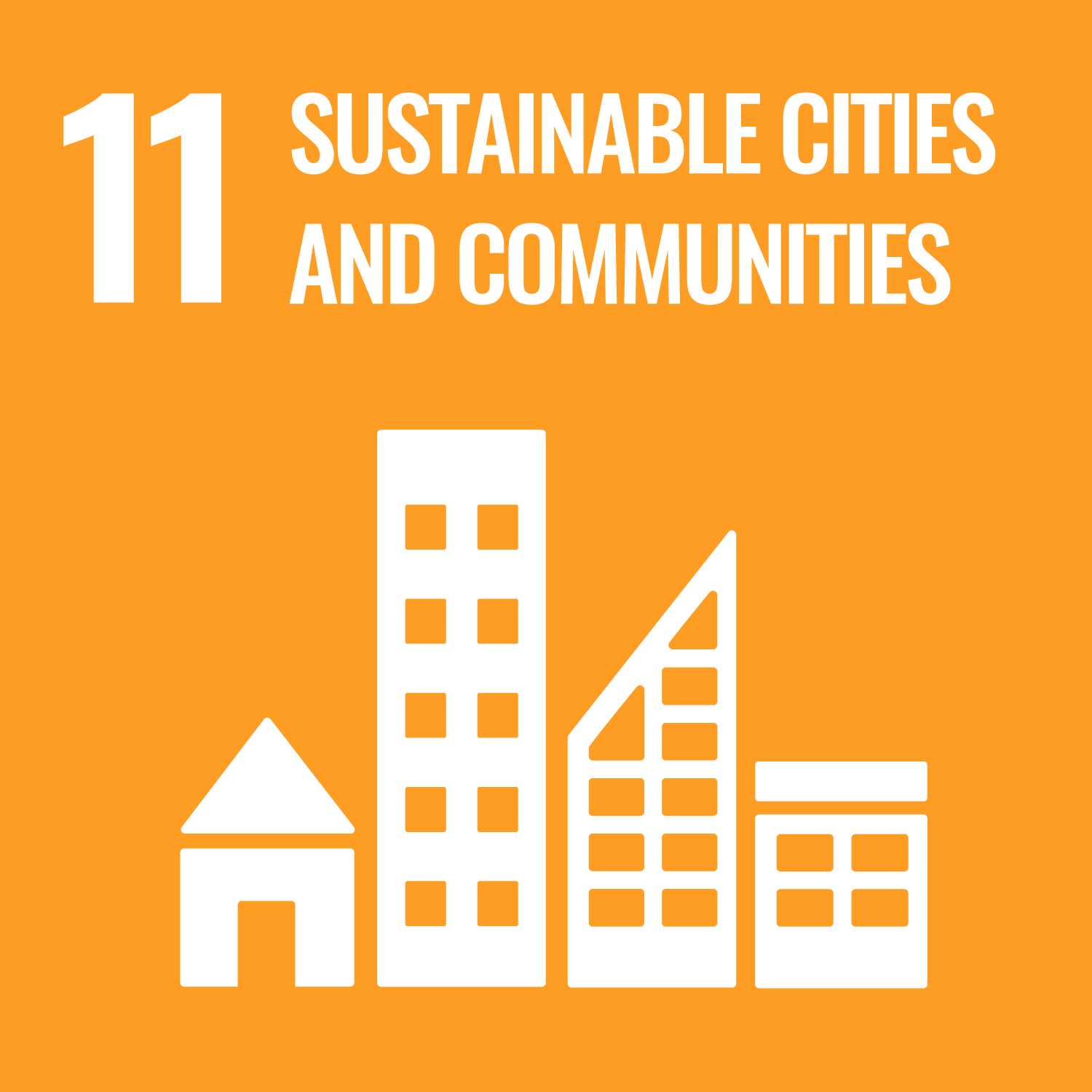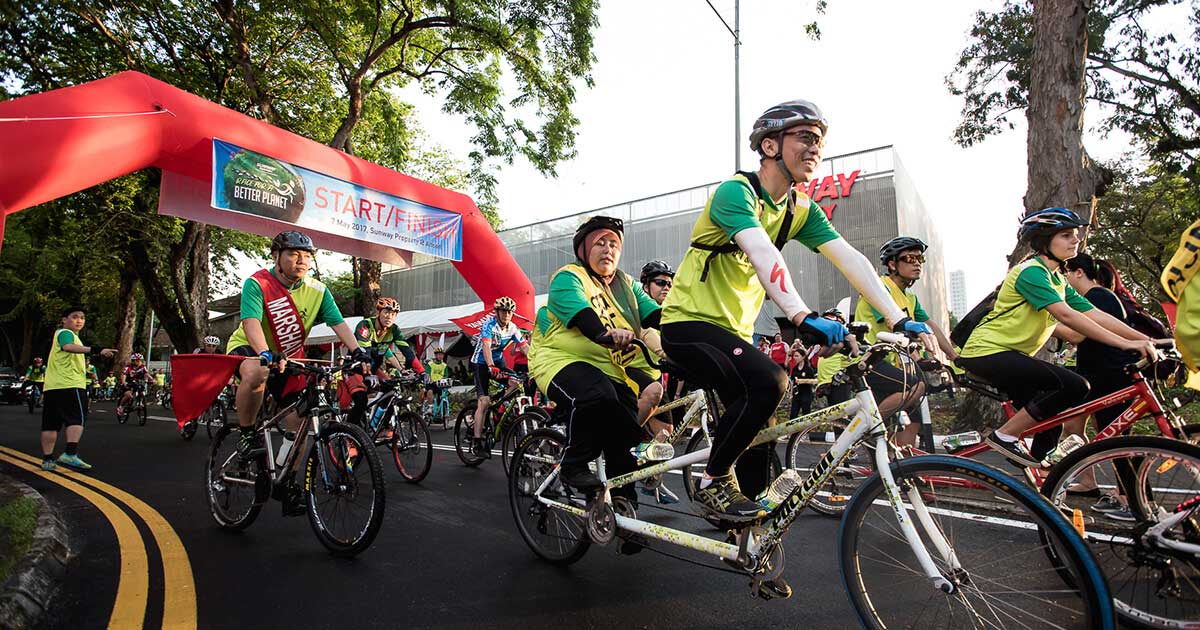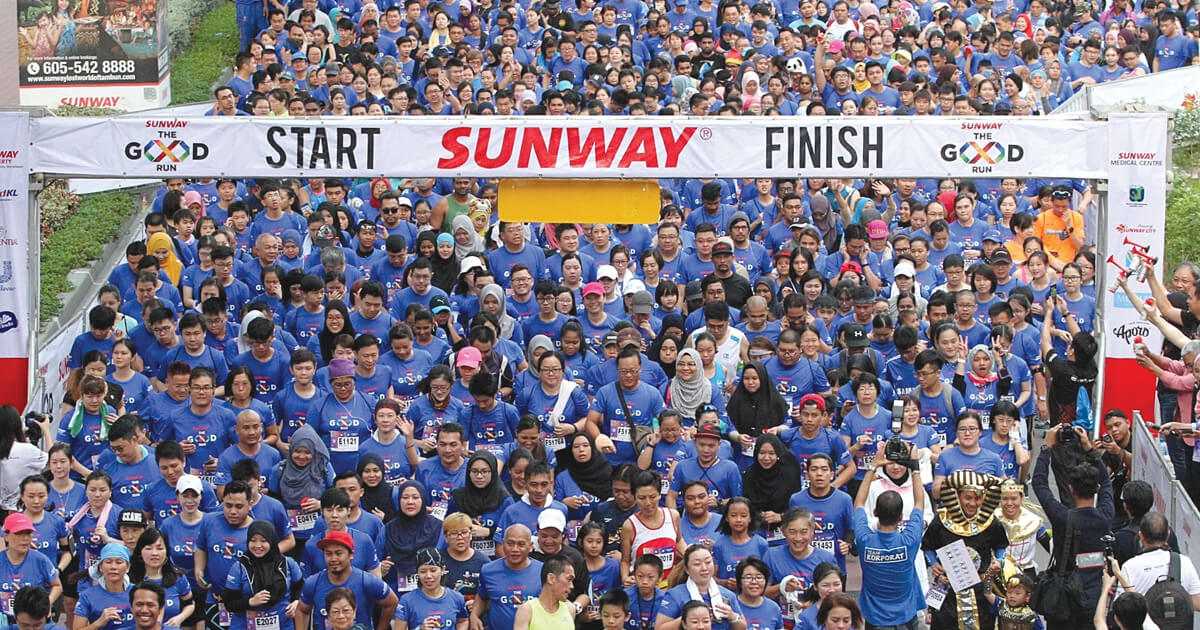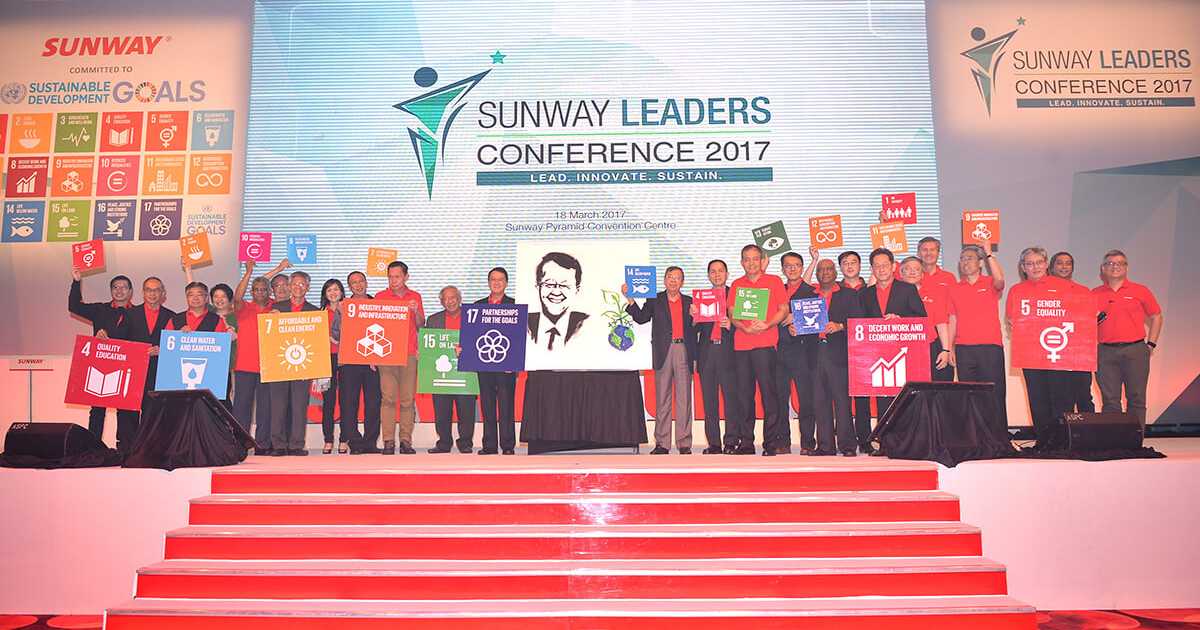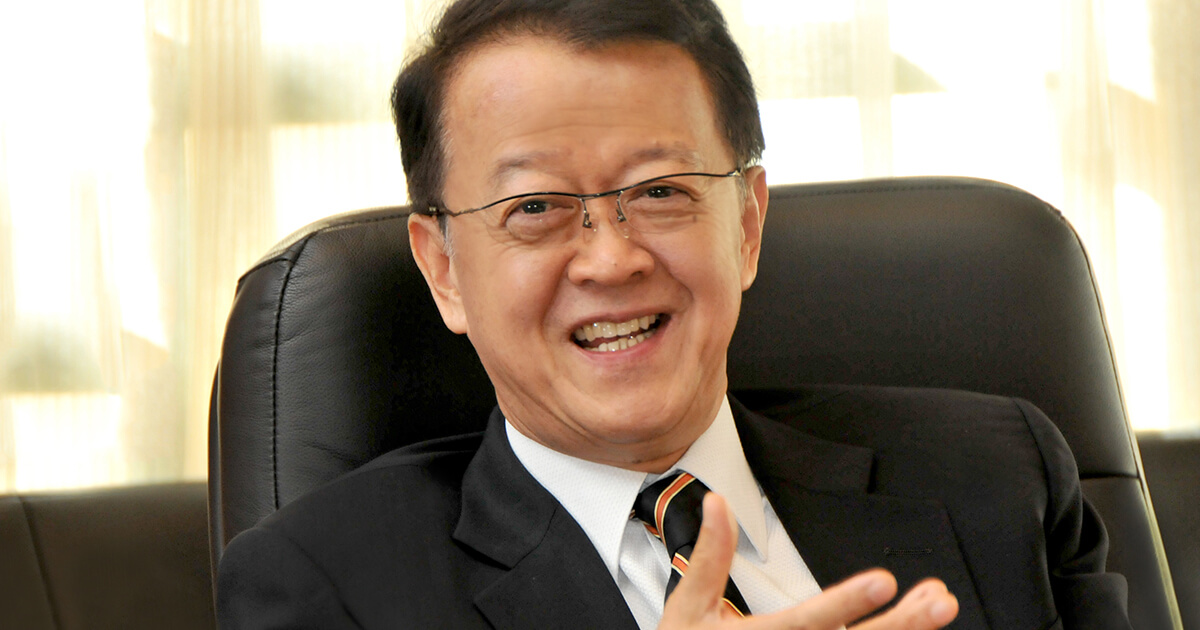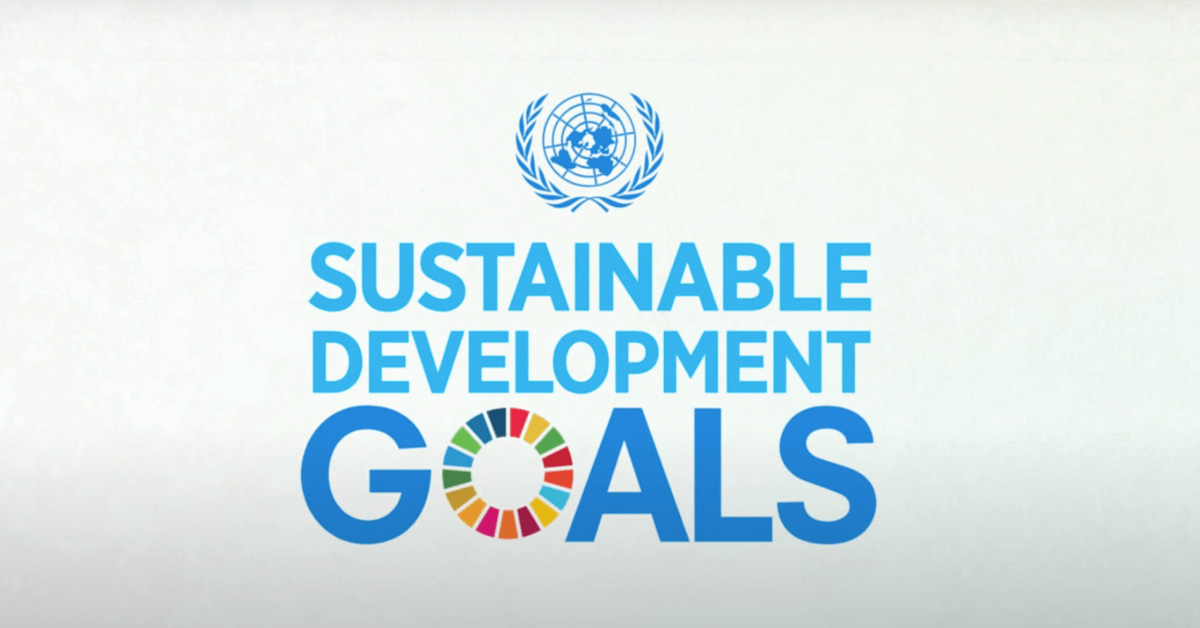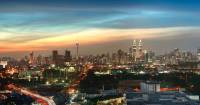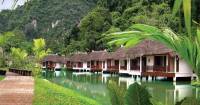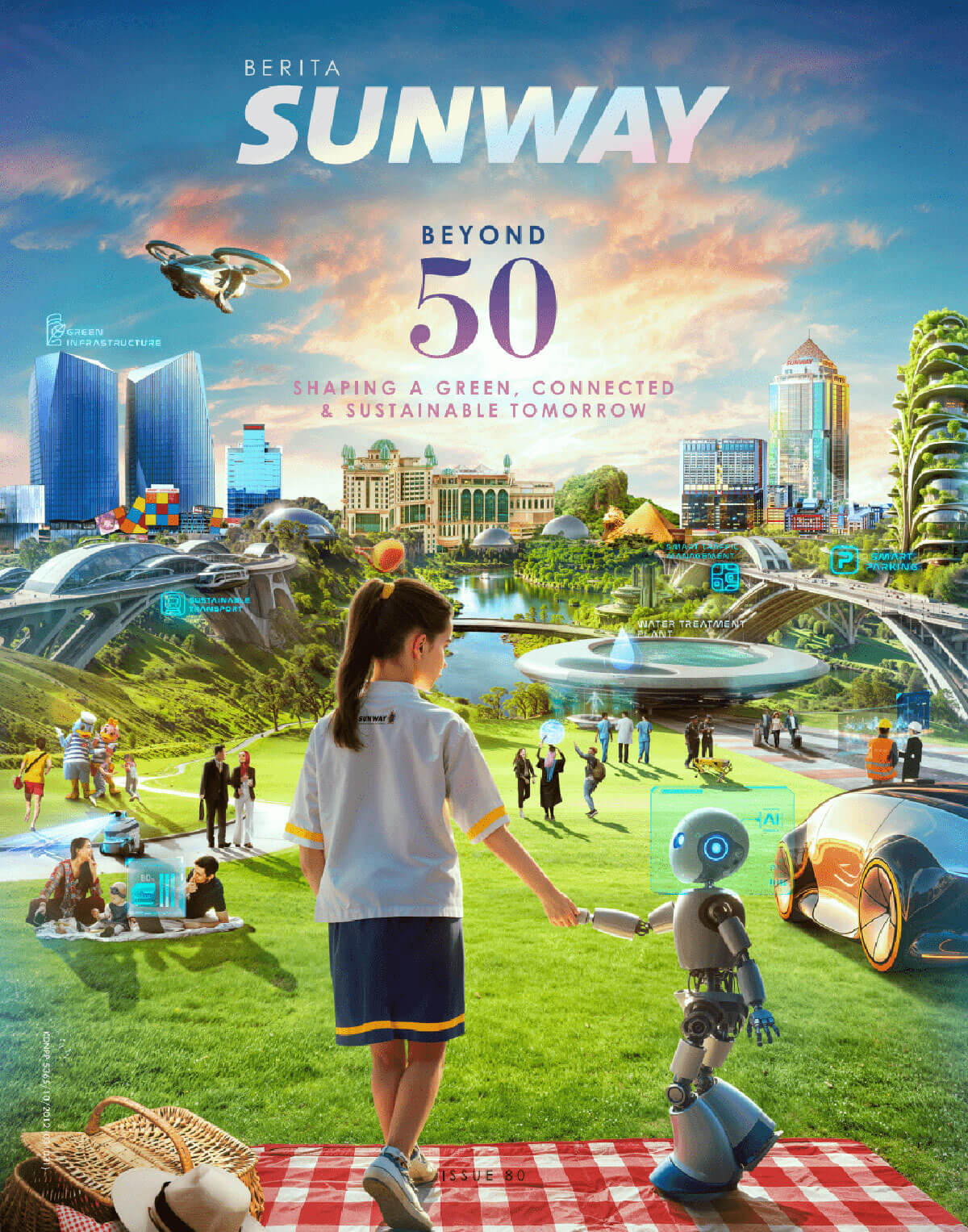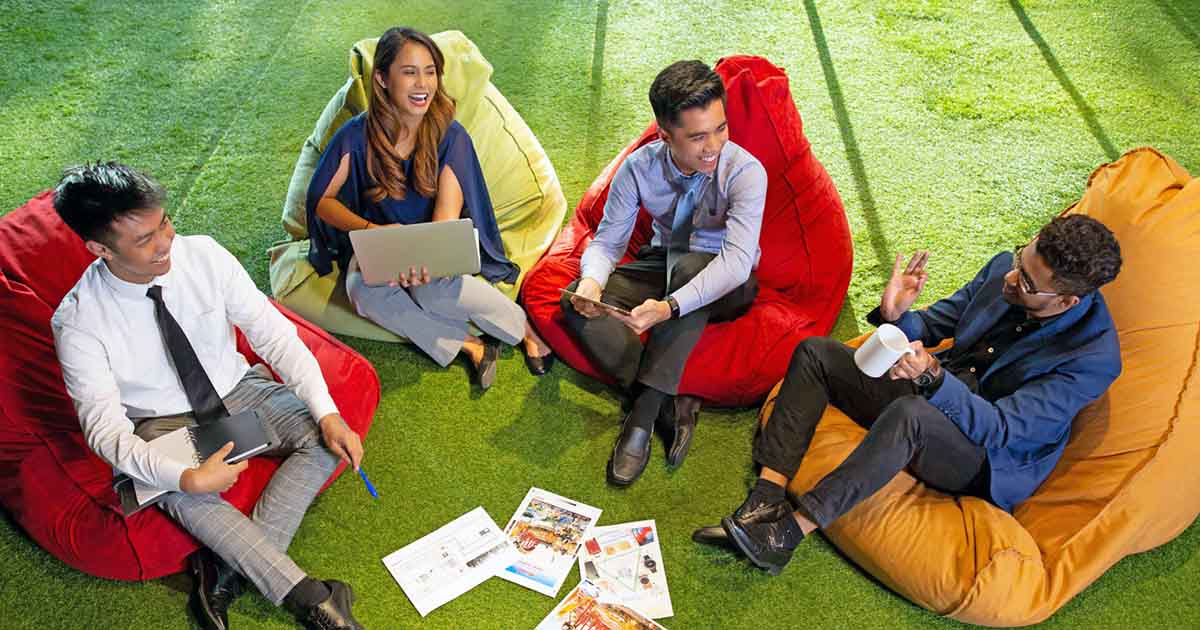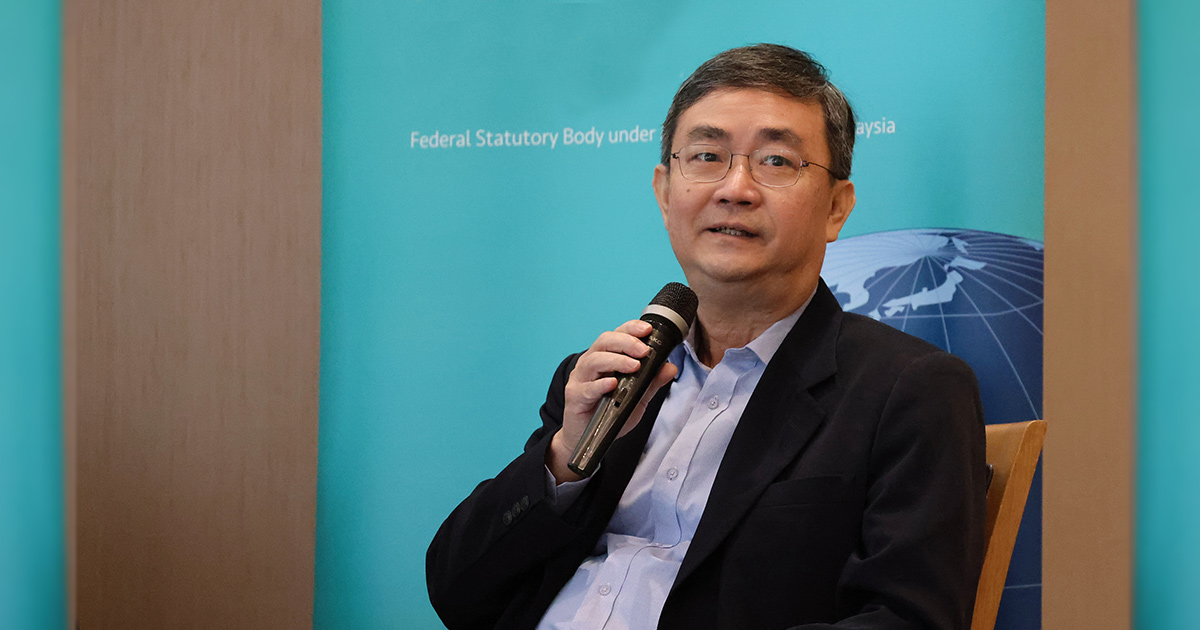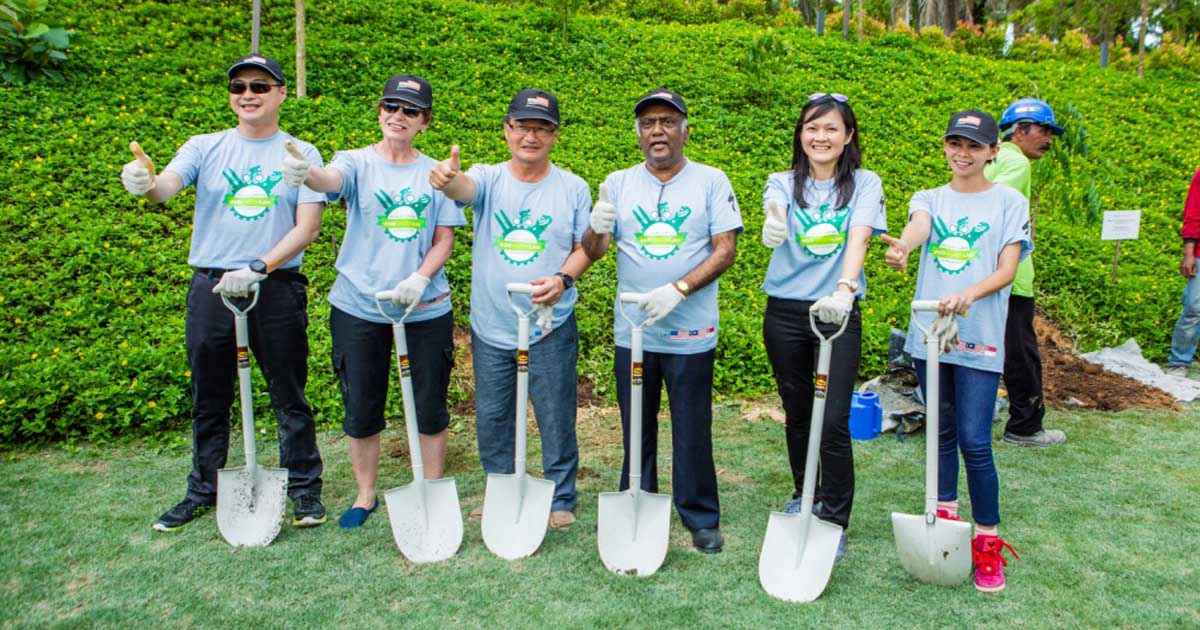Realising a Flourishing Society
Companies both big and small have begun to realise that partaking in green or eco-friendly activities is an important aspect of growing a business and a key factor that would help in establishing better ties with stakeholders and, in particular, the surrounding communities.
In the last two decades, the term sustainability has evolved from merely maintaining a certain rate or level of business to include the avoidance of the depletion of natural resources in maintaining ecological balance.
In the last two decades, the term sustainability has evolved from merely maintaining a certain rate or level of business to include the avoidance of the depletion of natural resources in maintaining ecological balance.
More often than not, however, the term is casually used as organisations seek to portray themselves as being socially responsible and active contributors to preserving the environment.
This then leads to the question of what is sustainable. What sort of benchmarks must companies set should they aspire to be deemed sustainable?
“A lot of people or developers view themselves as being sustainable by saying they plant a lot of trees, but if we were to look at the context promoted by the United Nations, there are 17 goals or aspects that need to be considered holistically,” says Cheng Jew Keng, head of the Sunway Smart Sustainable City taskforce.
As one of Malaysia’s largest conglomerates with 12 business divisions including property, construction, retail, hospitality, education, healthcare and leisure, the Sunway Group (Sunway) has always strived to grow the nation’s economy while also keeping an eye on preserving the planet.
Testament to Sunway’s commitment to the cause is its biggest success story, Sunway City, which is recognised as the country’s first fully integrated green township that has been Green Building Index certified in 2012 and won the Low Carbon City Award by the Malaysian Institute of Planners last year.
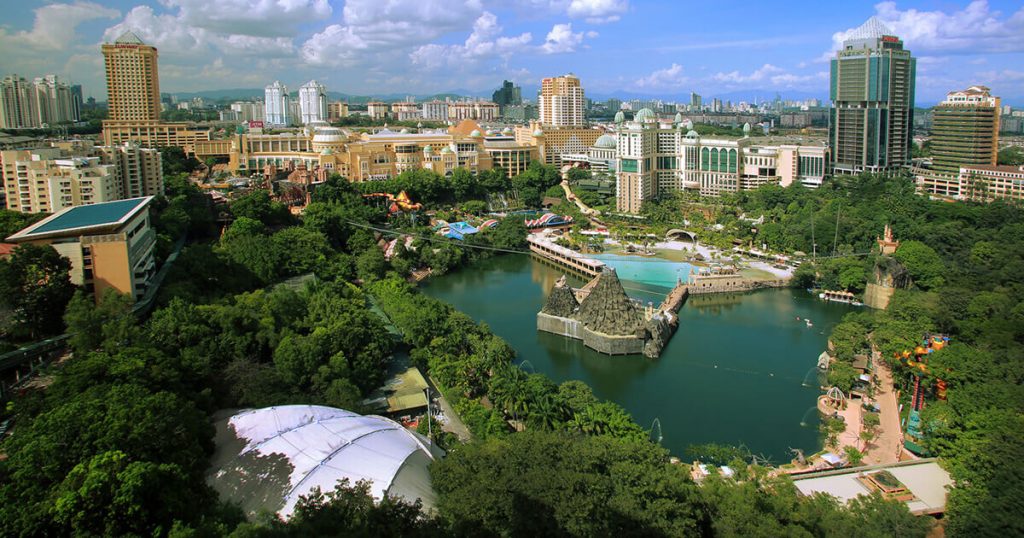
Sunway City is Malaysia’s first fully integrated green township as certified by Green Building Index in 2012 and is recognised as a Low Carbon City by the Malaysian Institute of Planners. Sunway City is making strides in becoming a smart city through a backbone of fibre optics, enabling 100% Wi-Fi connectivity for the entire city.
Ingrained in all employees
Such prestigious recognitions would not have been possible without the leadership of Sunway’s founder and chairman Tan Sri Dr Jeffrey Cheah, AO, who inculcated a strong company culture and commitment to economic, environmental and social practices.
Dr Cheah’s vision, endless commitment and dedication in furthering sustainability over the last four decades has earned him the inaugural Sustainability Icon
Award by RAM Consultancy.
Speaking in regard to Dr Cheah’s influence on employees, Cheng explains, “Sustainability is not only a global issue but part of our DNA at Sunway because, first and foremost, we view ourselves as a community developer.
“If we can look at sustainability holistically, there will be savings and value creation along the way that can be shared not only within the organisation but with the community, nation and region.
“Our intention is to convince other private organisations that, at the end of the day, sustainability is not necessarily a loss-making but value proposition. We wanted to tell people that this is the right way to build a township.”
Due to Sunway’s objective of encouraging more private entities to take sustainability seriously and as part of their business models, Cheng shares that Sunway is always willing to work and share the knowledge it has learnt over the years while also being open to collaborate with the Government to embark on larger-scale action plans.
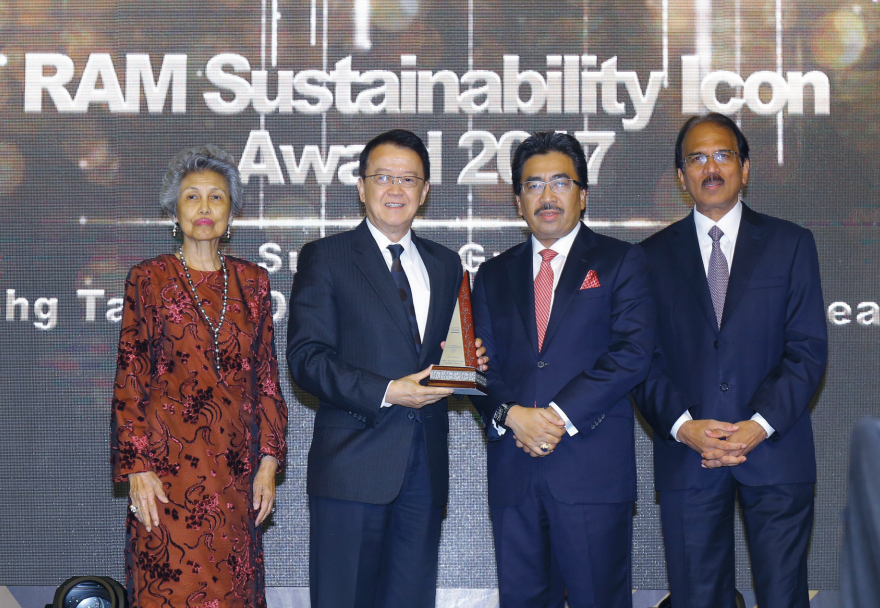
Tan Sri Dr Jeffrey Cheah, AO, (second from left) is the recipient of the inaugural Sustainability Icon Award, which recognises his commitment to furthering sustainability over the last four decades across Malaysia.
The big leap
Sunway’s biggest step towards sustainability was aligning itself with the United Nations Sustainable Development Goals (SDGs) and, last year, the Jeffrey Cheah Foundation donated US$10mil (RM42.7mil) to establish the Jeffrey Sachs Center on Sustainable Development (JSC) at Sunway University.
The SDGs are 17 global goals aimed at eradicating all forms of poverty, fighting inequalities and tackling climate change, among others.
These SDGs recognise that ending poverty goes hand-in-hand with strategies that spur economic growth and address social needs such as education, health, social protection and job opportunities, while at the same time being mindful of environmental protection.
Prof Jeffrey Sachs is a leading international authority in sustainable development, holding the positions of director of the UN Sustainable Development Solutions Network and chairman of the JSC.
The centre at Sunway University is to be a hub of research and policy practice, creating world-class programmes to train students, practitioners and policy leaders on sustainable initiatives while also developing links with universities, industries, agencies and government bodies.
“We would confidently say we have actively covered 15 of the 17 SDGs and we are not stopping there. We would also like to think of ourselves as the first private initiative in Malaysia to have spent such a vast amount of effort and resources into promoting the subject of sustainability,” says Cheng.
Through its efforts in transforming Sunway City from what was essentially a mining wasteland into a flourishing township, Sunway has, among others, built tertiary education institutions, a theme park, hotels, a shopping mall, medical facilities and homes.
Sunway has also planted 25,000 trees, which will rise to 30,000 in 2020, and created 48% of open space in the township with 24% being green lungs that contain more than 170,000 species of adaptive and native plants.
In the last two decades, the term sustainability has evolved from merely maintaining a certain rate or level of business to include the avoidance of the depletion of natural resources in maintaining ecological balance.
This infrastructure and the jobs created as a result of these developments have always been part of Sunway’s long-term development plan and it is therefore only natural for the company to continue incorporating more sustainable initiatives into the 21st century.
“Sunway City is a great rehabilitation effort and there were a lot of sustainable targets set without external compulsion or pressures but by the pure intention of the company,” says Cheng.
In terms of safety, Sunway City has its own 500-strong auxiliary police, close to 3,000 24-hour CCTV surveillance units throughout the township, anti-snatch theft fencing and implemented the Sunway Safe City Initiative.
Sunway also embarked on an extensive connectivity and transit master plan for the convenience of the surrounding communities.
This includes easy road access to Kuala Lumpur, six major highways, three highway links to Sunway South Quay, free shuttle bus service around Sunway City and elevated covered canopy walkways spanning 4km that encourage people to walk instead of relying on motorised vehicles.
Another noteworthy endeavour was the opening of the BRTSunway Line, an elevated bus service connecting Setia Jaya and USJ 7 using disabled-friendly electric buses.
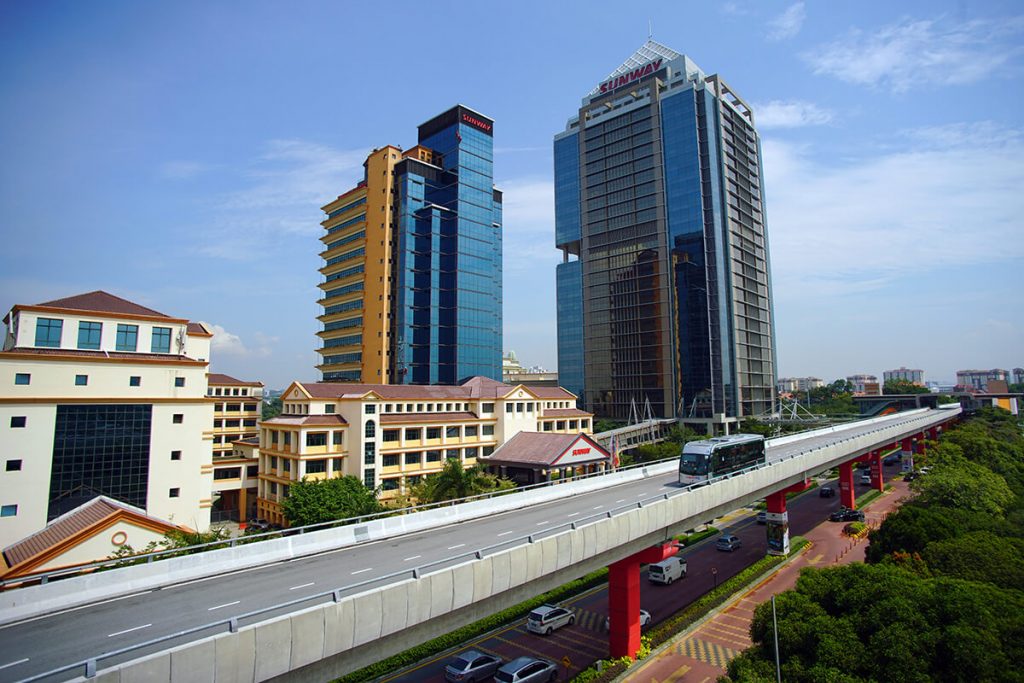
The BRT-Sunway Line is an elevated bus service designed as an effort to ensure extensive connectivity in a sustainable manner, connecting Setia Jaya and USJ 7 using electric buses.
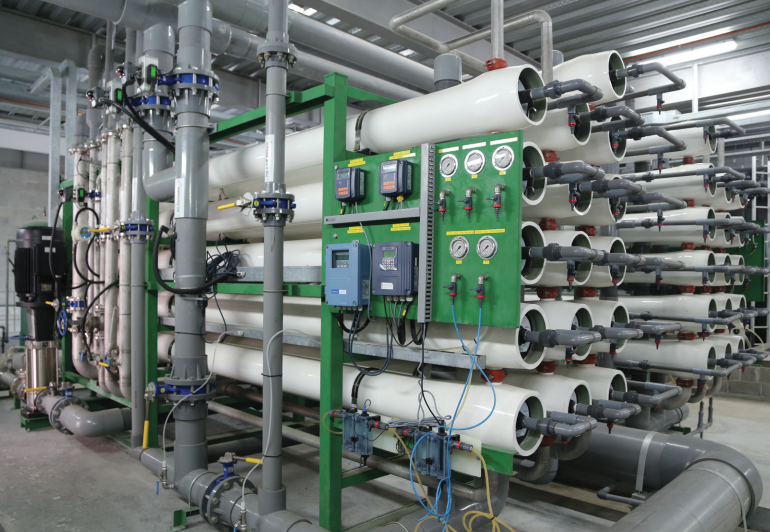
The water treatment plant in Sunway South Quay will use the water in the existing South Quay lake to produce approximately 10,000m3 of water a day to serve a host of commercial buildings in Sunway City.
Doing things right
Cheng believes Sunway City is the first smart sustainable city in Malaysia due to the company’s relentless pursuit of improving security and connectivity, encouraging a healthy lifestyle and meeting social needs of the community.
He says, “Urbanisation is something that is unavoidable as people come to cities to look for jobs. This will eventually lead to various urbanisation problems, including the need for better hospitalisation and healthcare facilities as well as education.
“Recognising that we are moving towards a digital world and the fourth industrial revolution, there is a need to use ICT as an enabler to solve the problems of an urban living space and achieve the 17 SDGs.”
Cheng reiterates that it is important for Sunway to prove that sustainable development alternatives are indeed available as well as showcase to other developers and townships that there is the possibility of job creation and community development without sacrificing the environment.
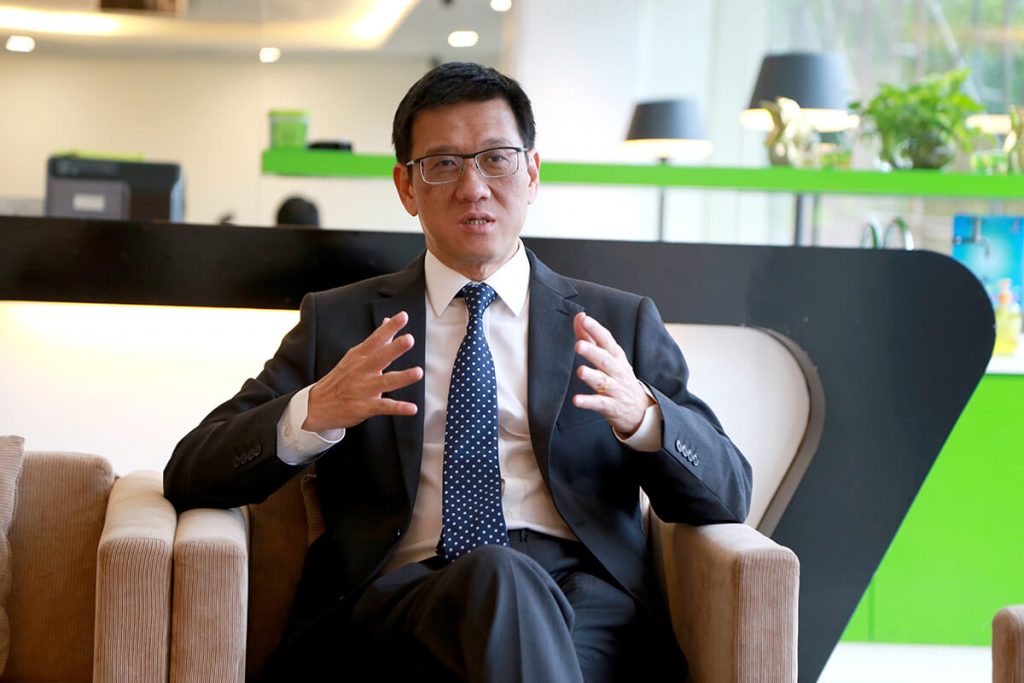
Cheng Jew Keng.
Building on its smart township vision, not only is Sunway City fitted with a broadband fibre optic backbone and, in the future, providing 100% Wi-Fi connectivity throughout Sunway City, it was also declared MSC Malaysia Cybercity and Cybercentre status – an area that provides a business environment and ecosystem that can attract ICT investors and promote the growth of ICT companies
With innovation being among the three main SDGs focused by Sunway alongside education and a sustainable community, Sunway has also opened the Sunway Innovation Labs or iLabs where various arms of the company can work closely together in a collaborative space to foster entrepreneurship, stimulate market-driven innovations and scale businesses faster.
“The idea is to pull academia from our universities and provide them with the platform to communicate and integrate with the commercial managers of Sunway, who constantly face commercial problems and no solutions.
“We believe there is a lot of knowledge within the academia and iLabs is seen to enable innovation, encourage start-ups, promote entrepreneurship and be a platform to train young professionals,” says Cheng.
Sunway iLabs has also established links with government bodies such as Malaysia Digital Economy Corporation (MDeC), Agensi Inovasi Malaysia, PlaTCOM Ventures, Malaysian Global Innovation and Creativity Centre, Cradle Fund Sdn Bhd and Malaysian Business Angel Network. In addition, Sunway has partnered with international ride-hailing company, Grab, and Silicon Valley based entrepreneur camp designers, Young Outliers.
Ongoing dedication
Sunway knows it cannot take its past accomplishments for granted and is thus continuing its focus on the environment as well as water and energy sources for the coming years.
“In the near future, we are going to install solar panels to promote renewable energy and also explore opportunities to work with academia for battery technology. As you know, we can harness solar energy but we cannot store solar energy in a meaningful and economical way, especially when people also need to use energy at night.
“We are also looking into combined power generation as we plan to have natural gas supplied to the township. We hope to be able to generate our own power supply and reuse waste heat for chilled water in absorption chillers,” says Cheng
Other green power initiatives planned by Sunway is drawing up a green power blueprint for Sunway City, which will hopefully be replicated in other parts of this region.
Cheng is optimistic that with the necessary production licence from the proper authorities, Sunway will be able to make use its water filtration plant at Sunway South Quay lake to produce its own potable water supply for its commercial properties.
Reviewing all the efforts undertaken by Sunway over the years and the new initiatives planned, the company has truly grasped the concept of sustainability and addressed the crucial 17 global SDGs that affect mankind, covering all social, economic and environmental concerns.
“The reason we at Sunway are able to conduct such a large-scale approach to sustainability is because we have a unique business model due to the ownership of infrastructure, which allows us to maintain control of a wide range of factors.
“The advantage of Sunway is that we have the power to plough back the returns into the township, from keeping the township clean and planting so many trees to installing CCTVs, having our own auxiliary police force and building the needed infrastructure,” concludes Cheng.
United for the common good
With a deeply rooted belief that its actions can greatly empower communities and beneficiaries, Sunway’s sustainability efforts are constantly centred on the environment, economy and society (EES).
The #SunwayforGood movement was launched as part of Sunway’s overall plan to deliver enduring growth for thriving communities by highlighting the broad range of initiatives undertaken by the respective business units and planting in all employees the spirit to do good, for good.
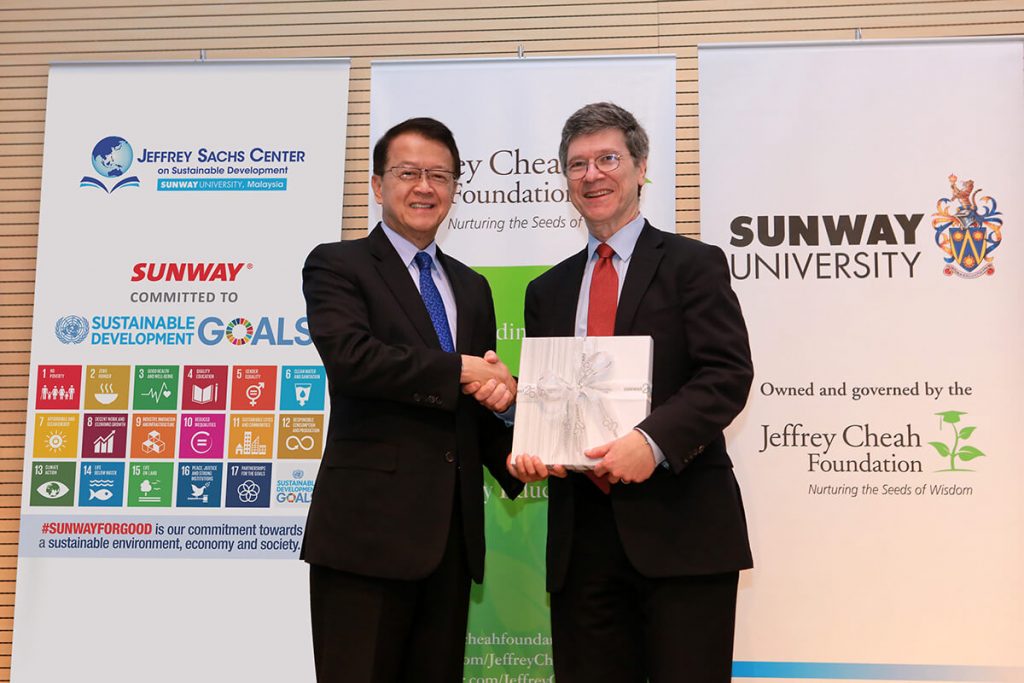
The Jeffrey Cheah Foundation donated US$10mil (RM42.7mil) to establish the Jeffrey Sachs Center on Sustainable Development (JSC) at Sunway University.
The article originally appeared in The Star, CSR Pullout











